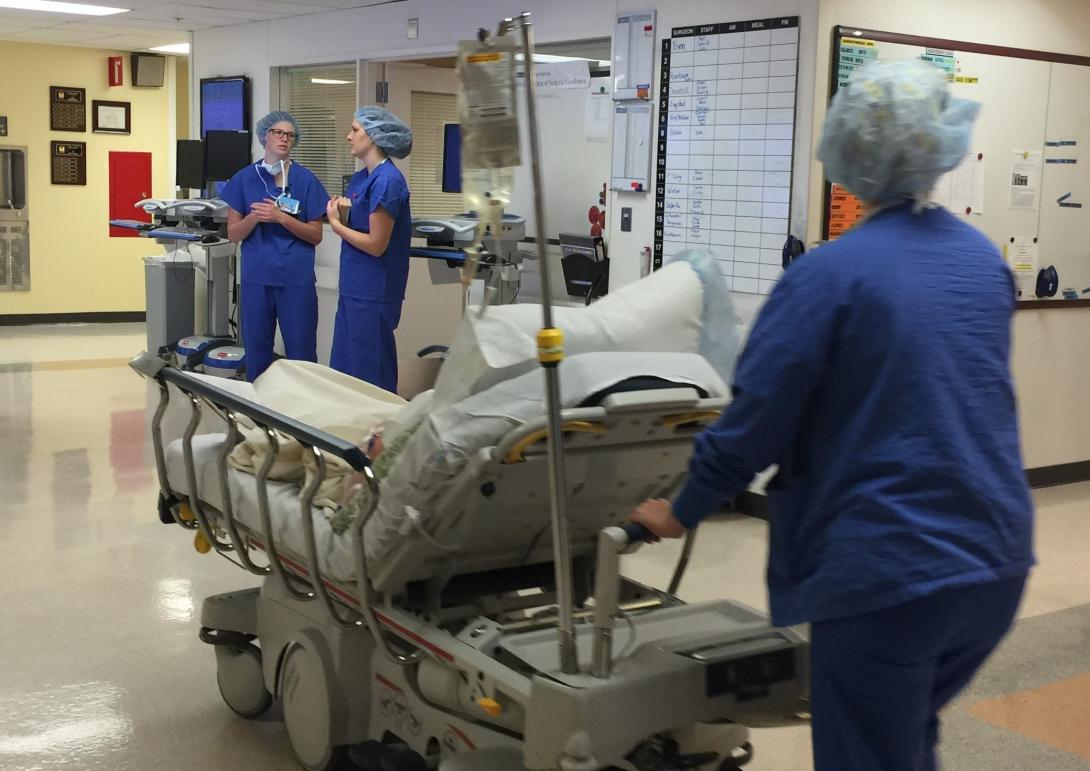
Ninety-seven percent of Oregon nurses have experienced a workplace stressor such as heavy workloads and burnout, according to a newly released survey.
More than 5,000 nurses in Oregon contributed to the anonymous survey, which was conducted by The Oregon Center for Nursing.
Its findings underscore what policymakers and nurses have heard repeatedly during the two-year pandemic: Nurses are burdened and stressed by understaffing and high patient demand for services, whether from COVID-19 or the backlog of elective surgeries that were halted early in the pandemic.
It’s critical for nurses to voice their needs, as they did in the survey, said Jana Bitton, executive director of the center, a nonpartisan organization.
“This is an opportunity for them to actually tell us how they're doing and what's going on with them,” Bitton said. “Without knowing what's happening with nurses, we're not hearing their perspective and it's really, really difficult to be able to help find ways to alleviate the stresses that they're feeling and keep them in the workforce.”
The “RN Well-Being Project,” received assistance from the Oregon State Board of Nursing, which sent survey questions to about 80,000 nurses in the state.
Responses came from nurses throughout Oregon and employed in different parts of the health care industry, such as hospitals, nursing homes and clinics.
Other findings of the survey include:
- 83% of respondents reported they experienced work-related stress; and 80% reported a sense of frustration.
- 95% of nurses reported their workplaces can change to better support their wellbeing.
- Nurses said they need: dedicated paid time to learn (32%); more support from supervisors (30%); changes to policies and procedures (26%); and emotional health resources (25%).
The survey results have been turned into an infographic for use in policy discussions.
In a statement, OCN Program Director Dawne Schoenthal said the survey shows that the nursing workforce continues to be under strain even as the coronavirus becomes less of an emergency pandemic and more of an “endemic” part of life.
“Honestly, if we don’t have the workforce to care for our patients, then that’s a crisis,” Schoenthal said. “We have sick people that are going to continue to get sick. We have an aging population and we have very little staff to care for them. That’s why this is important – so that patients, as they get sick, (know) there will be someone there for them.”
Nurses’ need for more support is front and center in labor negotiations at major Oregon hospitals.
Nurses at three Providence-affiliated hospitals in Oregon have voted to strike if they do not reach an agreement. Two of those hospitals, Providence St. Vincent Medical Center in Portland and Providence Willamette Falls in Oregon City, reached tentative agreements with hospital managers that nurses will vote on at each hospital separately in July. Besides pay, key issues in the proposed agreement include support so nurses are covered during breaks.
The Oregon Nurses Association, which represents nurses at the bargaining table, said the survey’s results reflect the realities on the job.
“Sadly, the findings in the recent Oregon Center for Nursing’s RN Well-Being project do not come as a surprise to us at all,” said Scott Palmer, a spokesperson for the nurses union. “In fact, this research simply reinforces what we have known, and what our members across the state have been telling us, for years: nurses are exhausted, overwhelmed, and need support.”
You can reach Ben Botkin at [email protected] or via Twitter @BenBotkin1.